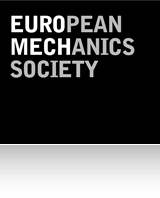546 – Combustion Dynamics and Combustion Noise
Chairperson:
Prof. Dr.-Ing. Christian Oliver Paschereit
Chair of Fluid Dynamics, TU Berlin
Müller-Breslau-Str. 8
D- 10623 Berlin
Germany
email: oliver.paschereit@tu-berlin.de
Co-chairperson
Dr.-Ing. Jonas P. Moeck
Chair of Fluid Dynamics
TU Berlin
Combustion generated sound is an important aspect to consider in the development of modern energy and propulsion technology. The three main phenomena encountered in this field are: direct combustion noise, indirect combustion noise, and combustion instabilities. Combustion noise refers to a one-way coupling between sound field and flame, where turbulent fluctuations in the approach flow cause unsteadiness in the heat release rate, which in turn is a source of sound. Feedback from the acoustic waves into the flow field and the flame are not considered here. Sound is also generated indirectly when temperature non-uniformities due to unsteady combustion are convected through regions with mean-flow gradients, such as a nozzle. In a confined situation, acoustic waves caused by unsteady combustion are reflected from the system's boundaries and eventually return to the burner flow field and the flame, where they generate a further perturbation in the heat release rate. Under certain phase conditions, an unstable feedback may arise resulting in an amplification of the fluctuations until a distinct single-frequency oscillation at a well-defined amplitude is established. In a practical situation, all three phenomena may be present, and a clear distinction between them is often difficult to accomplish.
The purpose of the 2013 EUROMECH 546 colloquium on Combustion Dynamics and Combustion Noise is to promote collaboration between professionals in various engineering fields. Expert scientists and engineers will exchange ideas and gain awareness on the development of modern energy and propulsion technology as it relates to combustion generated sound.
